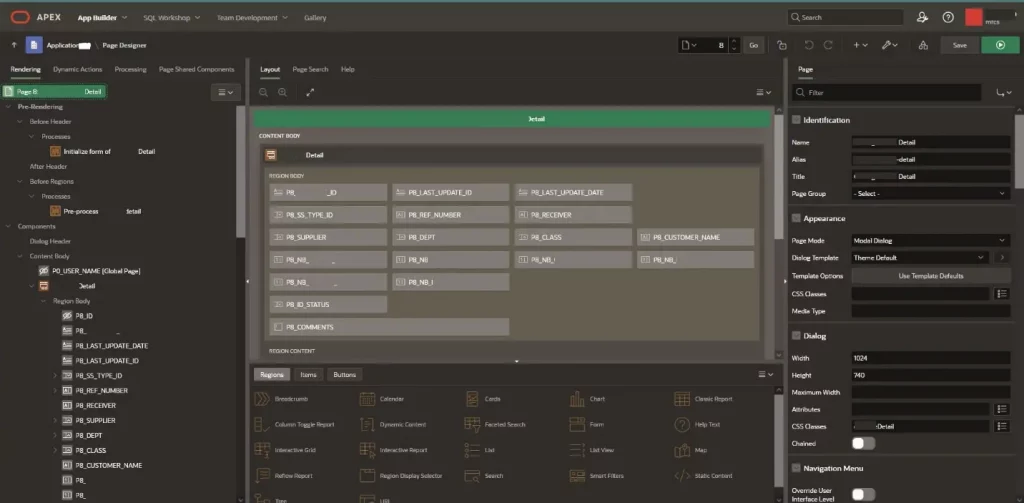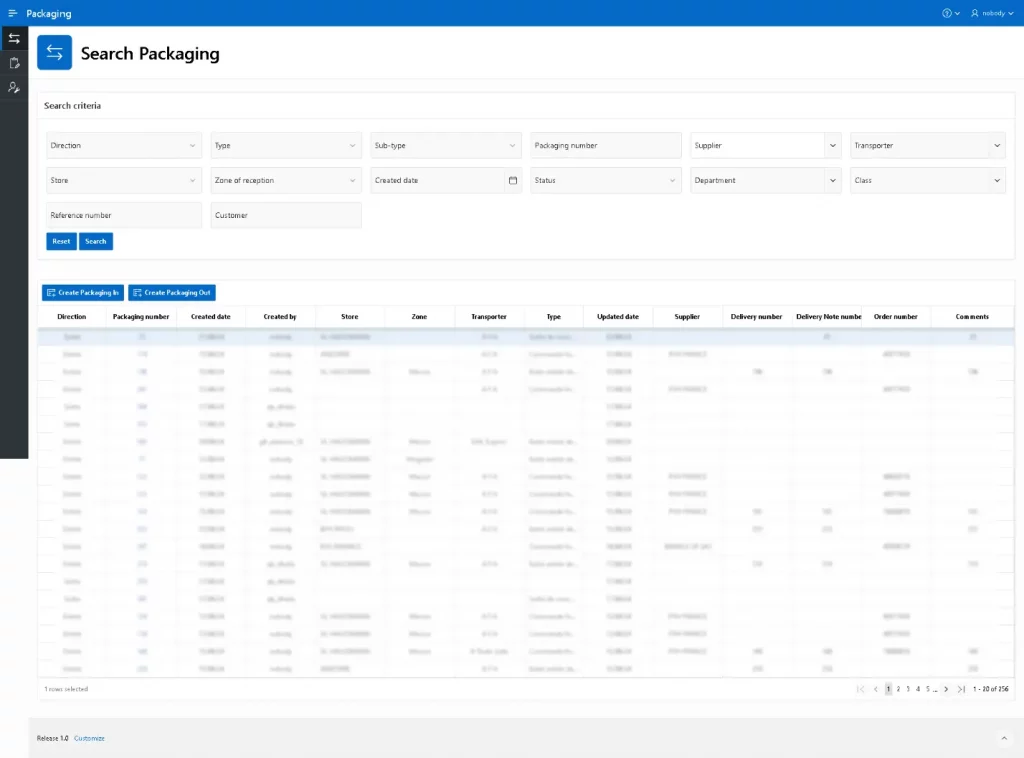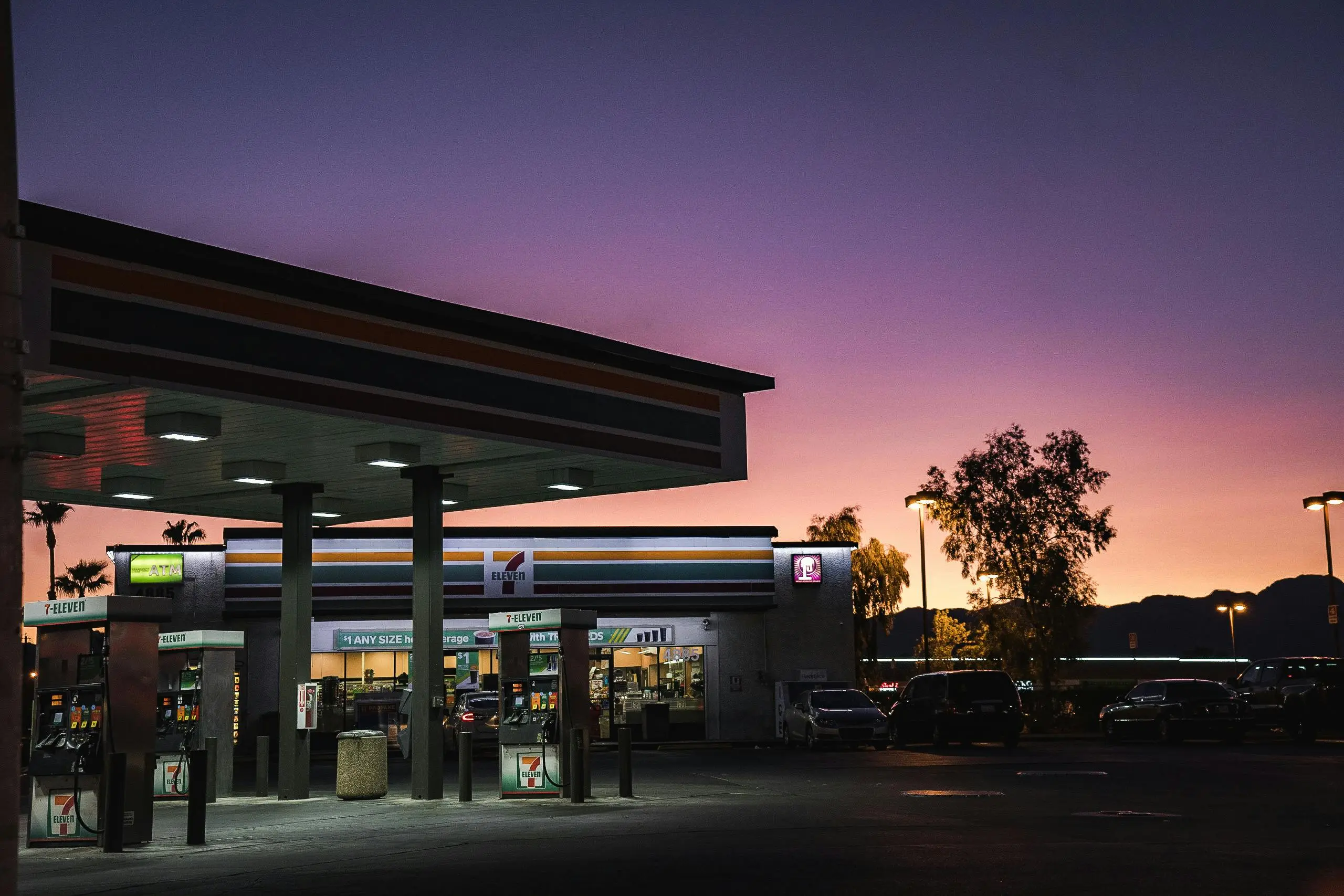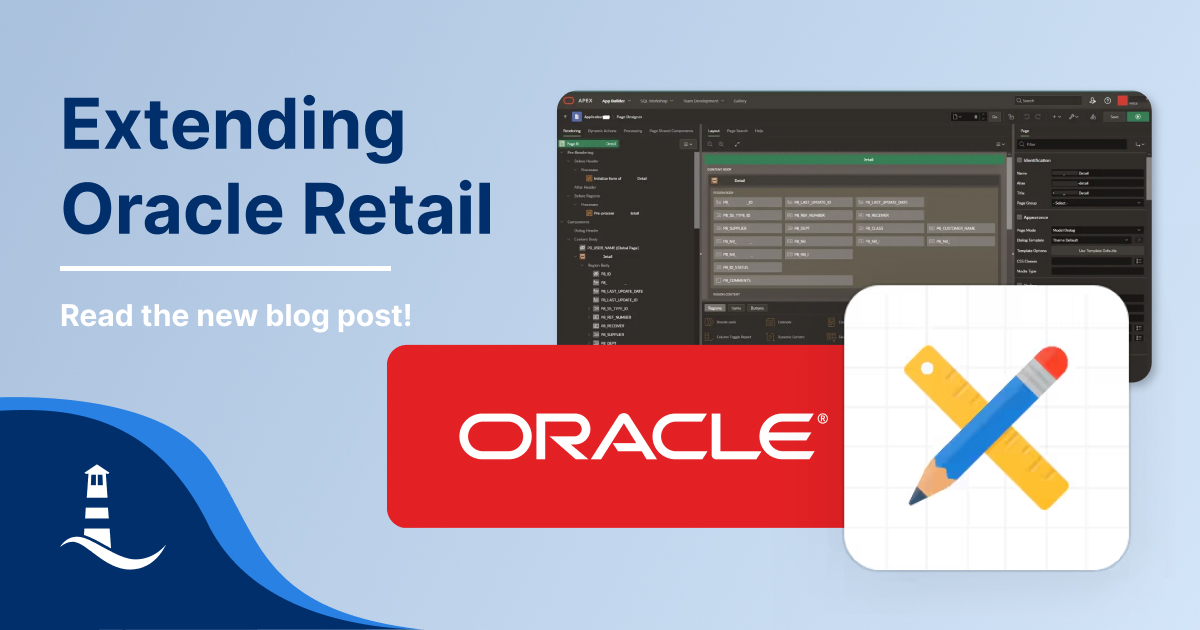Introduction
Retailers rely on SaaS cloud solutions more and more in order to gain agility and best practice processes quickly and efficiently. SaaS solutions also evolve continuously, with features being added by vendors regularly, negating the need for costly and slow upgrades.
The common downside of SaaS solutions is the inability to be customized. To address this challenge without breaking upgradability, Oracle Retail has introduced the Oracle Retail Extensibility Framework, which relies on standard APIs in the cloud solution, the Retail Data Store, and the APEX low code environment.
Extending Oracle Retail
In the past, extensions were written directly into on-premise solutions by altering the application source code and database structure. This also meant that standard patches could no longer be applied in an upgrade. Retrofitting customizations into upgrade patches is costly and requires extensive re-testing every time an upgrade is applied. To maintain upgradability of its cloud solutions while at the same time providing extensibility for the functionalities, Oracle has implemented a strict policy of no code change directly in the cloud solution. Data in the cloud solution can only be created and updated via standard APIs, but can be “read” via a replicated copy of the cloud data inside the Retail Data Store (RDS). RDS replicates data from the cloud solution so it can be leveraged when building extensions inside the RDS environment. Additional data and data structures can be added to RDS and modified freely, although the additional data and data structures are not stored back into the cloud solution; they only “live” in RDS, side-by-side with the cloud solution. By creating the RDS, Oracle has provided the ideal platform for extending its cloud retail solutions with unlimited freedom, while maintaining integrity of its cloud solutions for undisturbed upgradability. Leveraging Oracle Retail Home, extensions serve not only as a backbone for supporting additional processes, but also providing additional insight into ongoing business operations. Users can see extended data in Retail Home dashboards alongside standard information from Oracle Retail’s cloud solutions.Extending in APEX
Extending Oracle Retail solutions on the RDS platform using APEX low code is an efficient process, yet gaining proficiency requires passing a learning curve, especially when coming from an on-premise world of direct access to all layers of technology involved.
To mention a few examples:
- Make sure you familiarize yourself with naming conventions used in App Builder: They are sometime misleading, especially when coming from an on-premise background and naming standards.
- Passing modal pop-up parameters is different than other applications. Make sure you are familiar with APEX standards and try them in a mockup application. Don’t assume they will work as you may expect based on prior experience.
- When applying Ajax Callback to a Dynamic Action, make sure you take care of validations. The “traditional” submit process flow is not relevant because of page reload.

Examples
One of our European department store retailer clients has recently tasked our team to implement a series of functional extensions on their Oracle Retail Merchandising Foundation Service (MFCS).
Our team has built, tested and delivered requested functionalities on the RDS platform using APEX low code and Oracle Retail’s extension development standards on time and on budget. Our deliverables helped our client progress on schedule through their rollout timeline for needed functionalities supporting unique business processes.
An additional extension has been created and delivered, allowing the store users to manage the packaging (pallets, rolls, packages, clothes rails, covers and pieces) received in stores and issued from stores. This custom application gives the possibility to search, create and modify the packaging. Once it is created, a receipt/delivery note is generated to be printed and attached to the packaging.
Furthermore, our team worked on custom integrations to client’s legacy applications such as a ticket printing application. The solution that our team delivered enables to send foundation and transactional data from Retail Data Store to legacy application via webservices.
The same application is being developed for warehouse users, with the particularity to have a mobile part to scan the packaging on logistic platform.

Conclusion
Implementing cloud solutions from Oracle Retail allows retailers to quickly gain best practice process capabilities without having to compromise on unique functionality needs of the business. Leveraging Oracle Retail’s extensibility framework, retailers can extend cloud solution processes quickly, safely and reliably without breaking upgradability of the solution.
Next Steps
Contact our experts and explore how we can help you maximize value quickly from your Oracle investments!






